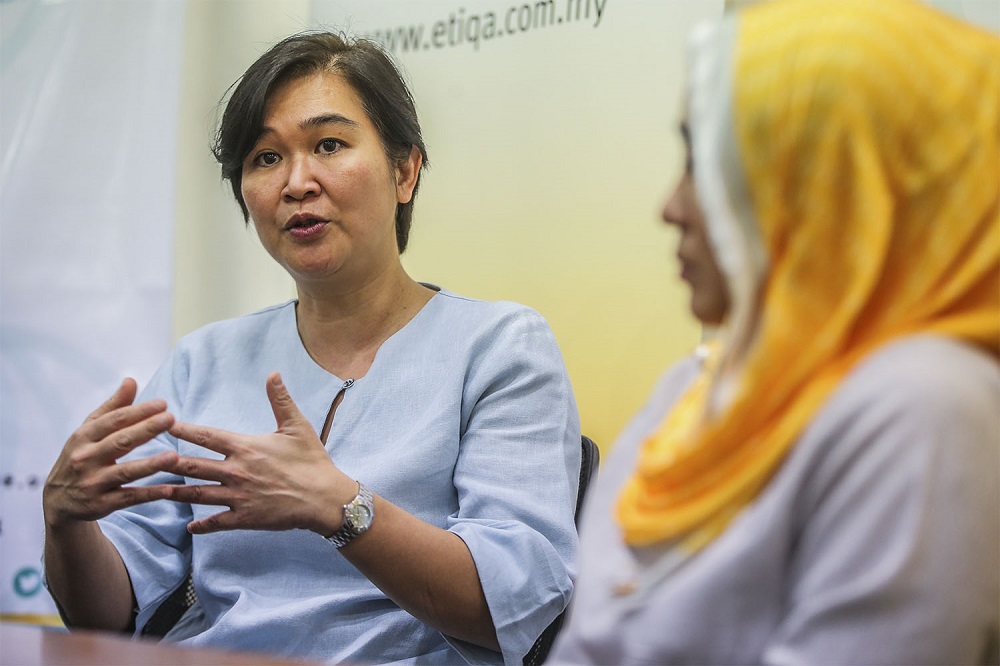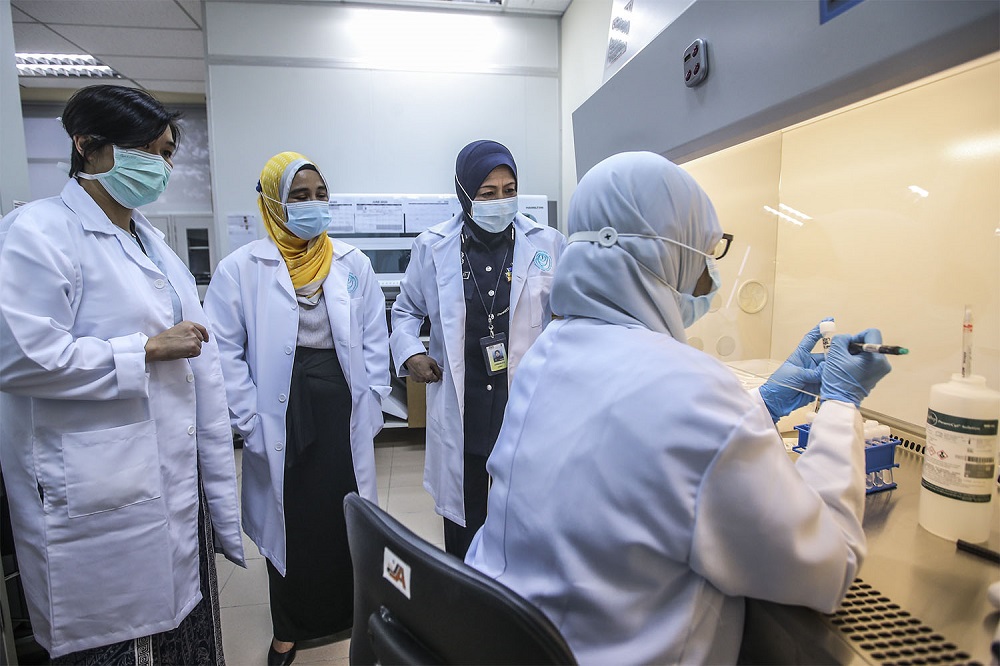PETALING JAYA, Aug 28 ― When three out of 10 female police officers who were battling cervical cancer succumbed to their illness, Datuk Asmawati Ahmad knew she had to find a way to get the women she worked with screened.
A chat with an ex-police officer then linked the Royal Malaysia Police (PDRM) Corporate Communication head to Rose (Removing Obstacles to Cervical Screening) Foundation which uses the revolutionary self-sampling method using a vaginal swab instead of the conventional pap smear examination.
A meeting with trustee Datuk Prof Dr Adeeba Kamarulzaman and the foundation’s medical technical advisor Prof Dr Woo Yin Ling last month resulted in a collaboration to empower B40 female police officers.
They also had the help of corporate sponsor Etiqa.

Within days, they found themselves in Kelantan to kick start what would be the first of a nationwide cervical cancer screening for female police officers from the bottom 40 per cent households.
“I realise most of our lady officers are selfless, even when we have scheduled medical examinations every month, many will forego their appointment to focus on other matters,” Asmawati told Malay Mail.
She added that it was particularly heartbreaking when young mothers die because of the disease, leaving their children behind.
“Nobody can replace a mother.
“For us in the police force, we are the angels to the family but when we come to work, we are the guardian angels for the nation.
“So if we don’t take care of ourselves, who is going to take care of us?” said Asmawati.
W
ith Rose’s inventive self-sampling test, she’s hoping to spread the word to all women eligible for testing across the nation.
Asmawati wants this to be a long-term collaboration and she hopes to explore other health initiatives not just for female police officers but for male officers as well.
“When they first came in, you can see the apprehension in their faces ― they were scared.
“They thought it was going to be very painful perhaps due to their pap smear experience, well you look at the speculum and the way it dilates, a shiver runs through your spine.
“But when they were given the explanation on how it’s done, they asked ‘Is that it?’ and didn’t expect it to be so easy and realised they didn’t have to go through the embarrassment of a doctor looking between your legs,” said Asmawati.
A joint venture between the Universiti Malaya (UM) and VCS Foundation Ltd in Australia, Rose Foundation is making cervical screening more acceptable and accessible to women by shifting the often humiliating and uncomfortable process of pap smears to quick and painless self-testing.
It’s also convenient as the results and follow-up appointments ― if any abnormalities are found – are delivered over mobile phone, the first in the world
How this ground-breaking testing method differs from pap smears is that self-sampling detects HPV (Human Papillomavirus), the main cause of cervical cancer whereas a pap smear identifies abnormal cells using a speculum and a sample is collected from the cervix.

“What’s really nice about this programme is it’s always been about community empowerment, women empowerment and giving back to the community and women.
“It takes away the responsibility away from the doctors because this is a simple procedure where you can take charge of your own health,” said Dr Woo, a UM consultant obstetrician and gynaecologist.
A total of 301 eligible female officers took part in the self-screening last month but many more showed up in hopes of getting tested.
Dr Woo emphasised that not being screened remains the biggest risk factor when it comes to eradicating cervical cancer, which she says can be eliminated when detected early.
Unlike pap smears which are done every three years, a woman only has to undergo cervical screening twice in her lifetime with a 10-year gap between each test.
“When you receive your screening result, they will inform you that your next screening is in 10 years’ time.
“It’s a relief that you don’t have the virus, can you imagine 10 years, that kind of assurance.”
Following Kelantan’s overwhelming response, the team will travel to Kuala Lumpur and Terengganu next month followed by Sabah until all states in the country have been covered.
Designed to aid B40 women as well as to give back to frontliners, the initiative has been so well received that Dr Woo said Malaysian army doctors have reached out to her in hopes of being included.
While it was her first time to Kota Baru, Dr Woo said Kelantan was chosen to kick off the initiative because it was Dr Adeeba’s hometown and one of Asmawati’s favourite places.
But beyond sentimental reasons, Kelantan has a host of social challenges with healthcare being just one of them.
“Any community with addiction, there’s poverty so it was a really good place to start and to bring something very good to a community that is always the last place to get the good stuff,” Dr Woo said.
For corporate sponsor Etiqa, the initiative involving PDRM fit perfectly with their goal of giving back to frontliners post-movement control order.

Etiqa corporate social responsibility head Siti Hafizah Mohd Zaharom witnessed first-hand how the self-swabbing method is changing the narrative of getting tested and how those who have experienced it would encourage other women to give it a go.
Many women have told her they avoided pap smears because they were afraid of the discomfort and they weren’t prepared to hear if they have cancer.
“When we tell them the test detects the virus that can lead to cancer, it opens up their mind.
“So, if there’s abnormalities, it’s not yet cancer and is preventable.
“It’s something that encourages other women to do and helps eliminate the fear and stigma,” she added.
Find out more at programrose.org.























